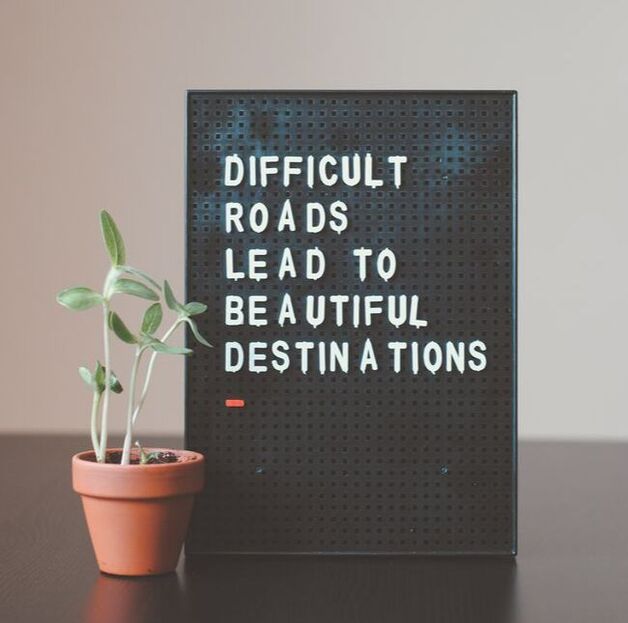|
This article was first published on ProHealth on November 28th, 2018. It was later removed for reasons outlined in this notice. Most of the links on this post are informational, but a few are affiliate links to help maintain this website. One of the biggest concerns I hear from my clients is about medication. They either want to avoid it altogether or try therapy first. As a holistic psychotherapist, I have no bias toward medication. It is life-changing for some people, and in some cases, absolutely necessary. However, it is one of the areas where holistic therapists approach mental health in a slightly different way. Holistic psychotherapy is an umbrella term that refers to a therapist who considers the body, mind, and spirit of the client, as well as, the connection between the three. Holistic therapists may also refer to themselves as:
Like traditional therapy, holistic therapy is rooted in research. This type of therapist tends to emphasize alternative treatments over more invasive interventions. Research shows treatments such as acupuncture, meditation, yoga, and supplements are all effective for anxiety and depression. In addition, mindfulness has become one of the most studied fields in recent times and proven to be very useful for treating many mental health issues. In the assessment phase, I approach a diagnosis as a starting point, rather than a definitive truth. A diagnosis is often helpful for a client to feel heard and validated (and most insurances companies require one); however, I encourage clients not to become attached to labels, because mental health is dynamic and ever-changing. A mental health issue is not "just in your head," and it is also not automatically a life sentence. When it comes to drug therapy, holistic therapists may consider a few steps before recommending a medication evaluation (unless the situation appears to require an assessment by a psychiatrist right away). For example, holistic "prescriptions" may include: walking in nature, spending time with animals, or adjusting sleep habits. We frequently consider physiological factors, as well, like vitamin deficiencies or thyroid issues, which often mirror symptoms of anxiety and depression. This is not to imply that other therapists don't have a similar approach, but it is one of the hallmarks of holistic therapy. The process of counseling may look different as well. Personally, I incorporate spirituality into my sessions. This does not necessarily mean religion, but we may explore the "bigger picture," such as interconnectedness, intuition, meaning, and purpose. During sessions, I may provide coaching on starting a meditation practice or do a guided meditation in the room with the client. Within holistic forms of psychotherapy, there is an emerging field called "somatic therapy." Somatic therapy uses the intelligence of the body to process trauma. Trauma has a profound effect on the nervous system. Essentially, people who experience trauma get stuck in the "fight or flight" response of the sympathetic nervous system. This has profound, negative effects on the brain and body, including an increase in inflammation and the stress hormones cortisol and adrenaline. As a result, people become chronically anxious and depressed, sometimes, to a severe degree. This type of reaction to trauma is also correlated with chronic illness, especially autoimmune conditions. One way somatic psychotherapy retrains the nervous system is through a process called "somatic inquiry," in which the therapist asks the client about physical sensations in the body, as well as, what they may notice in the physical environment. The therapist helps the client move energy that has long been stuck in the tissues. The goal of somatic psychotherapy is to help the client reach (and then maintain) what is referred to as "optimal arousal.: Therapists facilitate a shift from "hyper-arousal"(anxiety/panic) or "hypo-arousal" (depression/withdrawal) to a state of "calm vitality." In this state, a client feels energized, but not keyed up or activated. This greatly reduces symptoms, and it also creates a safe emotional place in which to process trauma and avoid retraumatization. So, how do you know if holistic therapy is right for you? Ask yourself the following questions: 1. Do I prefer a holistic approach to healthcare? If you see an integrative or naturopathic doctor and prefer to take supplements over medication, this may be the right type of therapy for you. 2. Am I interested in exploring the body-mind-spirit connection in therapy? For some people, this is very important. For others, they may want to focus more on talking through a problem. If you are very attuned to your body, you may find this approach particularly helpful. 3. Am I drawn to yoga and meditation as a way to reduce stress? If you are drawn to these modalities, you may find that a holistic therapist "speaks your language." 4. Have I tried medication or traditional therapy and am looking for another option? Maybe you already tried the traditional route and were left wanting more from your appointments. Remember there are always other options and holistic therapy may be right for you. Now, you may be thinking "I want to try holistic therapy, but how do I find a therapist who practices this way?" The process of finding a holistic therapist is similar to that of finding a traditional therapist. If you see an integrative doctor or naturopath, they most likely have a list of referrals. Another way is to do a search on the website of your insurance company, and then, view a therapist's individual site for more information. Another option is to use the search feature on Psychology Today, which allows you to search by your zip code and then narrow it down by category. Two categories to consider are "Mindfulness-Based (MBCT)" or "Somatic." Last but not least, don’t underestimate the strength of a good old-fashioned Google search. Both a traditional or a holistic approach to therapy can be helpful. What's most important is finding a therapist who is a good fit for you. When choosing a therapist and therapy style, don't be afraid to shop around a little before making a commitment. References: S.G. Hofman, A.T. Sawyer, A.A. Witt, D. Oh. (2010, April 1). The Effect of Mindfulness-Based Therapy on Anxiety and Depression: A Meta-Analytic Review. Retrieved from: https://www.ncbi.nlm.nih.gov/pmc/articles/PMC2848393/ Shohani, G. Badfar, M.P. Nasirkandy, S. Kaikhavani, S. Rahmati, Y. Modmeli, A. Soleymani, M. Azami. (2018, February 21). The Effect of Yoga on Stress, Anxiety, and Depression in Women. Retrieved from: https://www.ncbi.nlm.nih.gov/pmc/articles/PMC5843960/ T.S. Sathyanarayana Rao, M.R. Asha, B.N. Ramesh, K.S. Jagannatha Rao. (2008, April-June). Understanding nutrition, depression and mental illnesses. Retrieved from: https://www.ncbi.nlm.nih.gov/pmc/articles/PMC2738337/ "There's something in everybody that longs for that awakening to be more true to yourself." - Eckhart Tolle
0 Comments
|
WelcomeI'm Kerry (She/Her/Hers) and I am a licensed therapist, group facilitator, poet, writer, & speaker. This is a place to acknowledge and validate our suffering and trauma, while also learning how to turn toward aliveness and spaciousness. Categories
All
Archives
April 2024
|
|
Copyright © 2024 Kerry J Heckman All rights reserved. Disclaimer.
|
|




 RSS Feed
RSS Feed